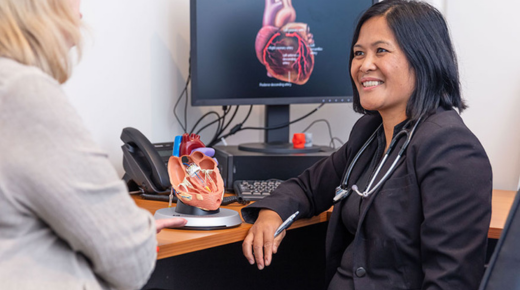Varicose veins are a common condition that affects millions of people worldwide. These enlarged, twisted veins, typically found in the legs, are not only a cosmetic concern but can also lead to discomfort and other complications if left unmanaged. The good news is that adopting certain lifestyle changes can help prevent varicose veins and maintain optimal vascular health. Here are some practical tips to keep your veins healthy and reduce the risk of developing varicose veins.
1. Stay Active
Regular physical activity is one of the best ways to promote healthy circulation and prevent varicose veins.
- Exercise Benefits: Activities like walking, jogging, cycling, and swimming improve blood flow in the legs and strengthen the muscles that support your veins.
- Avoid Prolonged Sitting or Standing: Long periods of immobility can cause blood to pool in the veins. If your job requires sitting or standing for extended hours, take breaks to move around or stretch.
- Simple Leg Exercises: Try calf raises or leg lifts to stimulate circulation and reduce pressure on your veins.
2. Maintain a Healthy Weight
Excess weight places additional pressure on your veins, especially in the lower body.
- Weight Management: A balanced diet and regular exercise can help maintain a healthy weight and reduce the strain on your veins.
- Nutrient-Rich Foods: Include plenty of fiber-rich foods, fruits, and vegetables to support overall vascular health and prevent constipation, which can exacerbate varicose veins.
3. Elevate Your Legs
Elevating your legs is a simple yet effective way to improve blood flow and relieve pressure on your veins.
- How to Do It: Lie down and prop your legs up on pillows so they are above the level of your heart. Do this for 15-20 minutes a few times a day.
- Benefits: This position helps blood flow back to the heart and reduces swelling in the legs.
4. Wear Compression Stockings
Compression stockings are a non-invasive way to support your veins and improve circulation.
- How They Work: These specialized stockings apply gentle pressure to your legs, helping blood flow upward toward the heart.
- When to Use Them: Consider wearing compression stockings if you stand or sit for long periods, travel frequently, or notice mild swelling in your legs.
- Consult a Specialist: Talk to a healthcare provider to find the right compression level for your needs.
5. Adopt a Vein-Friendly Diet
Certain foods can promote vein health and reduce the risk of varicose veins.
- Foods to Include:
- High-Fiber Foods: Whole grains, legumes, and leafy greens help prevent constipation, which reduces pressure on your veins.
- Antioxidant-Rich Foods: Berries, citrus fruits, and tomatoes contain antioxidants that support vascular health.
- Hydrating Foods: Drink plenty of water and include water-rich foods like cucumbers and melons to maintain hydration and improve circulation.
6. Avoid Tight Clothing and High Heels
What you wear can impact your vein health more than you might think.
- Loose Clothing: Tight clothes, especially around the waist and thighs, can restrict blood flow and increase pressure on your veins.
- Comfortable Footwear: Avoid high heels, as they hinder the natural pumping mechanism of the calf muscles. Opt for low-heeled or supportive shoes instead.
7. Quit Smoking
Smoking negatively impacts circulation and damages blood vessels, increasing the risk of varicose veins and other vascular issues.
- Benefits of Quitting: Improved blood flow and reduced inflammation in the veins.
- Resources: Seek support through cessation programs or counseling to make the transition easier.
8. Monitor Your Posture
Your posture plays a significant role in maintaining good circulation.
- Avoid Crossing Your Legs: Sitting with your legs crossed can restrict blood flow.
- Sit Straight: Maintain good posture by sitting with your feet flat on the floor and your back straight.
9. Stay Hydrated
Proper hydration supports overall circulatory health and prevents conditions that strain your veins.
- Daily Intake: Aim for at least 8 glasses of water per day, more if you are active or live in a hot climate.
- Limit Alcohol and Caffeine: These can dehydrate your body and negatively affect circulation.
10. Know Your Risk Factors
Certain factors may predispose you to varicose veins, including genetics, age, and lifestyle.
- Family History: If varicose veins run in your family, take extra precautions to maintain vein health.
- Regular Check-Ups: Consult a healthcare provider for personalized advice, especially if you notice early signs of varicose veins, such as swelling or discomfort.
Preventing varicose veins involves a combination of healthy habits and proactive measures. By incorporating these lifestyle changes into your daily routine, you can improve your circulation, reduce pressure on your veins, and support overall vascular health. If you’re concerned about your vein health or notice symptoms of varicose veins, consult a healthcare professional for guidance and treatment options. A few simple steps today can make a big difference in preventing varicose veins and maintaining your well-being. Often accountants have varicose veins, they aren’t so active during the day. And there is a bigger risk.





